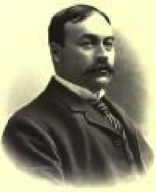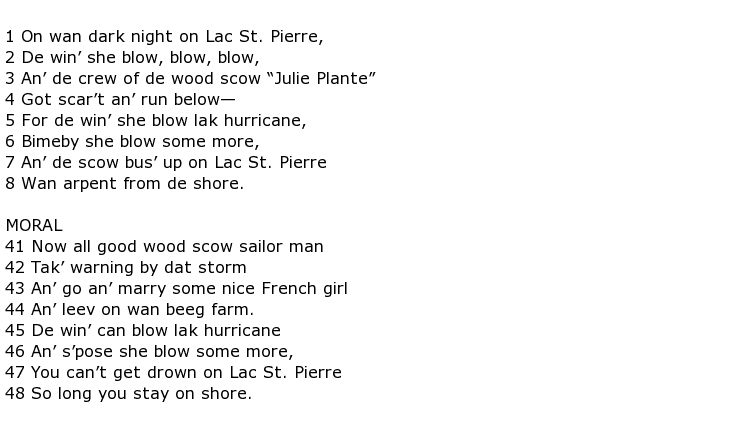 William Henry Drummond was an Irish-Canadian poet of the second half of the 19th century who lived a relatively short life and yet made a huge impact on the Canadian poetry loving public. He specialised in humorous dialect poems that were instantly appealing and he became “one of the most widely-read and loved poets” in Canada.” Alongside this he was a qualified medical practitioner, having a medical practice in Montreal for many years. He dabbled in silver mine exploration, was a much in demand public speaker and a regular contributor to a number of periodicals.
William Henry Drummond was an Irish-Canadian poet of the second half of the 19th century who lived a relatively short life and yet made a huge impact on the Canadian poetry loving public. He specialised in humorous dialect poems that were instantly appealing and he became “one of the most widely-read and loved poets” in Canada.” Alongside this he was a qualified medical practitioner, having a medical practice in Montreal for many years. He dabbled in silver mine exploration, was a much in demand public speaker and a regular contributor to a number of periodicals.
His birth name was William Henry Drumm, born in County Leitrim, Ireland on the 13th April 1854. These were times of great poverty in Ireland and the family took the opportunity to emigrate to Canada when William was 10 years old. The father changed the family name to Drummon but, within two years of arriving in the new land, he was dead. Severe financial difficulties were ahead but they somehow prevailed. William was sent to be a trainee telegraph operator at the age of 14 in a Quebec lumber town. He came across many interesting characters here and began to formulate his ideas for future writing based on these people. Once he had reached 21 he elected to change the family name once more, adding a single letter to make it Drummond.
Shortly after this he decided to take up medical studies and, after much struggle he succeeded. Over the next few years he practiced medicine in a number of Eastern townships and then Montreal. He married a Jamaican woman here who became his biographer later on. His writing was becoming more and more important and included a poem that was almost a parody of the famous Wreck of the Hesperus by Henry Wadsworth Longfellow. Drummond’s version was called The Wreck of the Julie Plante, written in 1879 and follows the same stanza form as Longfellow’s poem. Here is the first verse of the poem and the last one, which is the moral of the story:

Another very popular piece of work was called Right Minds and included the poignant lines:

Ironically its popularity almost resulted in Drummond losing all acknowledgement that it was his. It was incorporated into other work, recited and repeated over and over with the locations in his poem being changed. It became his most anthologised poem and, eventually, some people forgot that it was originally his.
Although a lot of Drummond’s work was humorous some was much more serious, a good example describing his wife’s painful recovery from the death of their first child. Written in 1895, he called it Le Vieux Temps. A first collection was published soon after and The Habitant became the body of work that established the name of William Henry Drummond as a great writer of dialect verse. This was a style of writing that did not survive much beyond his death in 1907. Longfellow called him “’The pathfinder of a new land of song” and French-Canadians embraced this immigrant poet wholeheartedly, accepting that his gentle mocking of the indigenous people was not done with any malice whatsoever.
Drummond was a very much respected literary speaker and often found himself with more requests than he had time for, covering the whole of Canada and the United States. His work was selling in huge numbers and life was looking very good. He went with his brother to the Ontario silver mining area and they had some success there too. He also wrote poems about life in the north of the country. But then, unexpectedly, tragedy struck.
Following a short visit to New York and Washington DC with his wife during the spring of 1907 they returned to Ontario and Drummond suffered a sudden and fatal cerebral haemorrhage and the country had lost one of his most loved poets.
William Henry Drummond died on the morning of April 6th 1907, aged only 48.

